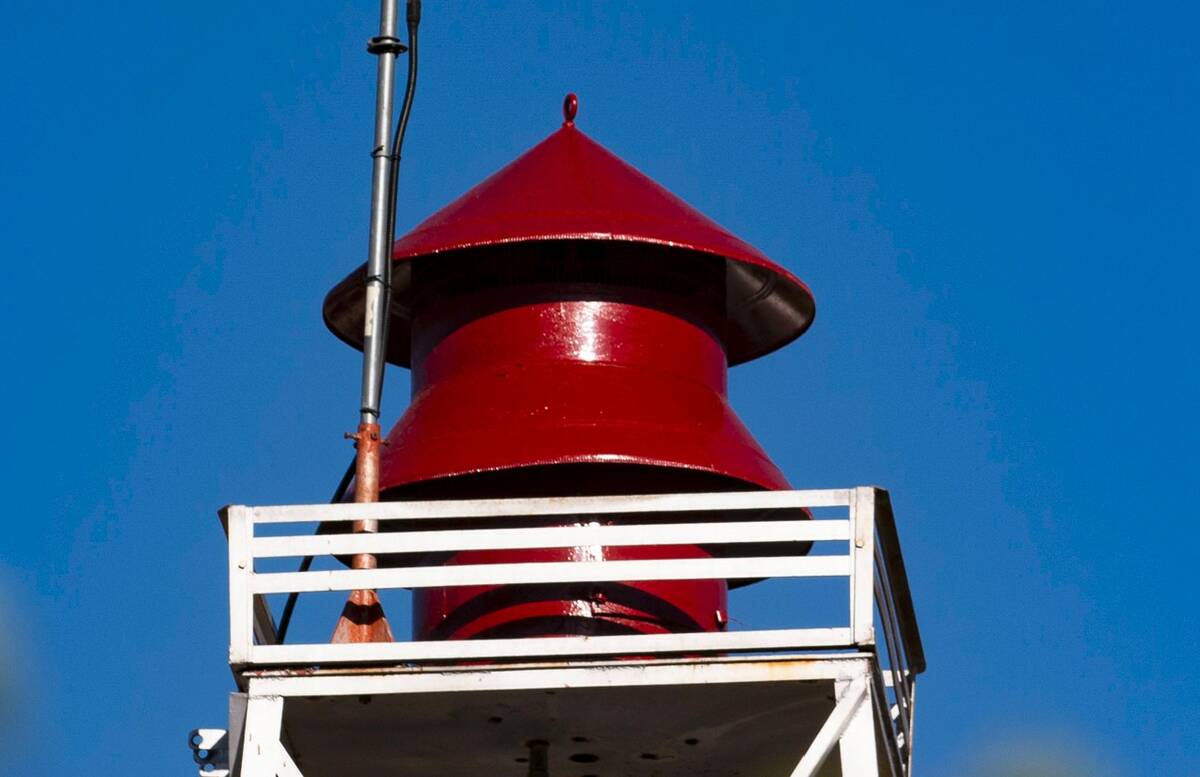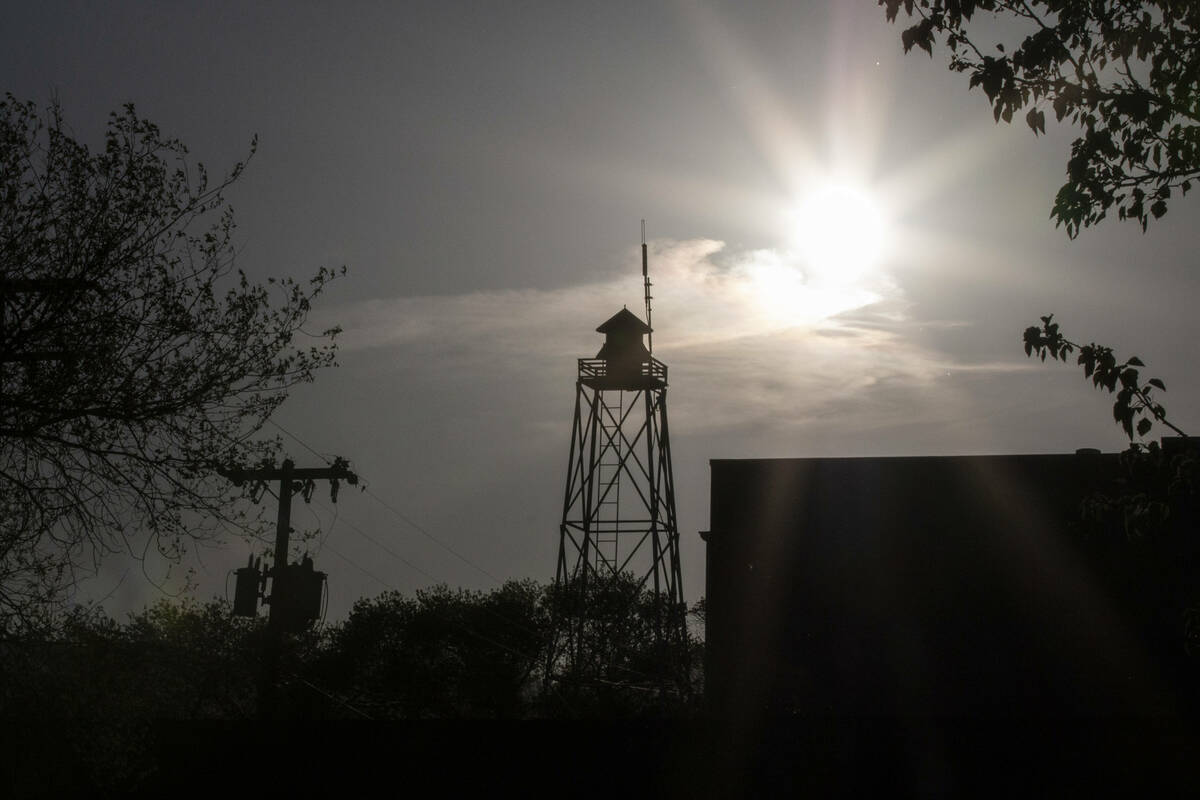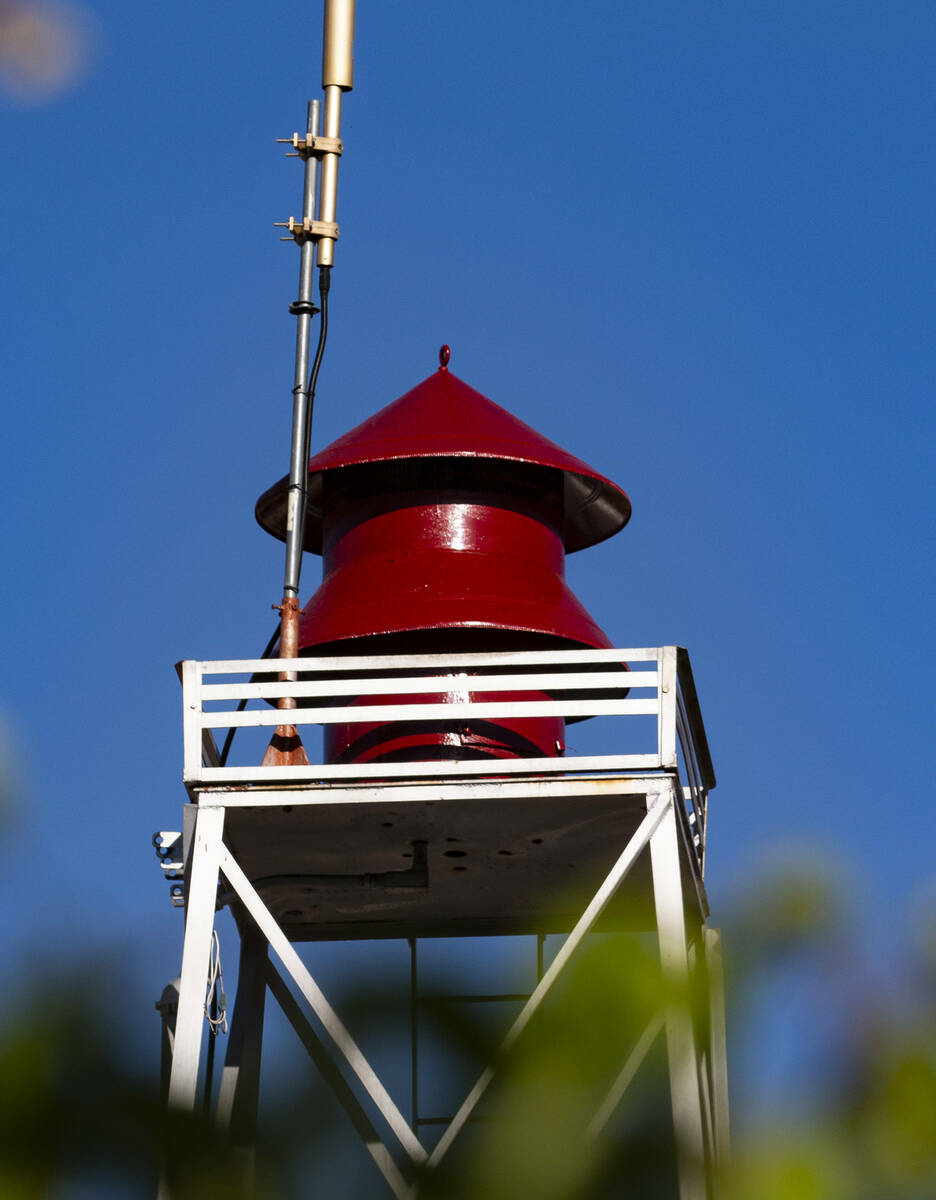‘It should be offensive to every Nevadan’: Bill looks to silence controversial siren
In 2021, Nevada banned the use of sirens that once sounded as signals for nonwhite people to leave a town before sundown.
But nearly two years later, members of the Washoe Tribe of Nevada and California are once again pushing to silence one such controversial relic that still blares out each night in Minden, a small town along the eastern Sierra Nevada that for more than 60 years kept discriminatory sundown ordinances on the books.
“Continuing to ring that siren is almost a way of reminding the Washoe people that the town has control over them. And that’s just not true,” Washoe Tribe Chairman Serrell Smokey told the Las Vegas Review-Journal.
And now a bill in front of this year’s Nevada Legislature seeks to silence that siren for good.
Last month, state Sen. Dallas Harris, D-Las Vegas, introduced Senate Bill 391, a bill that would all but put an end to Minden’s daily siren ringing.
Joined by her daughter and niece during a legislative hearing on Wednesday, Reno-Sparks Indian Colony member Deon John told lawmakers that hearing that siren reminds her that she is “not important in this world some days.”
“I have to sit and explain to these children that in this day and age, they are not thought of as people, they are not thought of as human beings, because this siren is still going off to this day,” John said.
The bill would outright ban unincorporated towns in Nevada from sounding sirens, bells or alarms for anything but actual emergencies, testing at “reasonably scheduled intervals” or in celebration of a holiday. Under the bill, towns could be fined up to $50,000 for violations.
“No loopholes, no agreements, no gimmicks,” Harris said in an interview. “No more siren. It’s offensive. It’s offensive to the native population who lives in that area. It’s offensive to me as someone who that bell may have applied to had I been around when those ordinances were in place. And it should be offensive to every Nevadan.”
Sundowner signal
Until 1974, Douglas County, where Minden is located, required Native Americans to leave town by 6:30 p.m. or face fines or jail time. Town officials have long maintained that the siren was never intended as a sundowner signal, but its nightly sound inevitably served as a signal to Native Americans that they had 30 minutes to leave town.
The Nevada Legislature passed a law in 2021 that banned the use of sundown sirens, such as the one that sounded in Minden every day at 6 p.m. dating to 1921.
After then-Gov. Steve Sisolak signed the sundown siren ban into law in June 2021, Minden and the Washoe Tribe announced that they had struck an agreement to change when the siren sounded, from 6 p.m. to 5 p.m. — essentially a workaround of the law’s language.
But Smokey told The Associated Press at the time that the agreement to change the time wouldn’t be the Washoe Tribe’s final say on the issue.
The Record Courier reported that in 2006 Douglas County decided to turn the sirens off, with then-County Manager Dan Holler saying at the time that it was a gesture to help improve relations between the county and the Washoe Tribe. That lasted just two months, as the county voted to restore the siren, this time to honor emergency personnel.
‘Trauma that lives on’
Before the 2021 bill was signed into law, town officials told the Reno Gazette-Journal that they had no plans to quiet the siren, claiming it wasn’t associated with the sundown siren since the siren was purchased after the sundown ordinance was put in place.
“That is what the siren was. It’s that trauma that lives on,” Smokey said. “I don’t care if it was a completely different siren, or if the meaning behind it was intended. That’s what it was for our people.”
Town Manager J.D. Frisby did not respond to emails and phone calls seeking an interview for this story.
Smokey said silencing the siren is not about erasing history.
“It’s stuff no one wants to hear, no one wants to remember. No one wants that blemish on their town,” Smokey said. “But its something that needs to be acknowledged. If we don’t recognize that we have a problem, then we will never fix it.”
Harris, the bill sponsor, said she understands that the siren has a certain place in history for the town’s roughly 3,400 residents, but she thinks there are better ways to honor first responders than by continuing to ring the siren, like parades and hazard pay.
“History is probably where it should remain,” Harris said of the siren. “Ringing that bell very much has impacts on native children today and their families that we also must acknowledge.”
Contact Colton Lochhead at clochhead@reviewjournal.com. Follow @ColtonLochhead on Twitter.






















